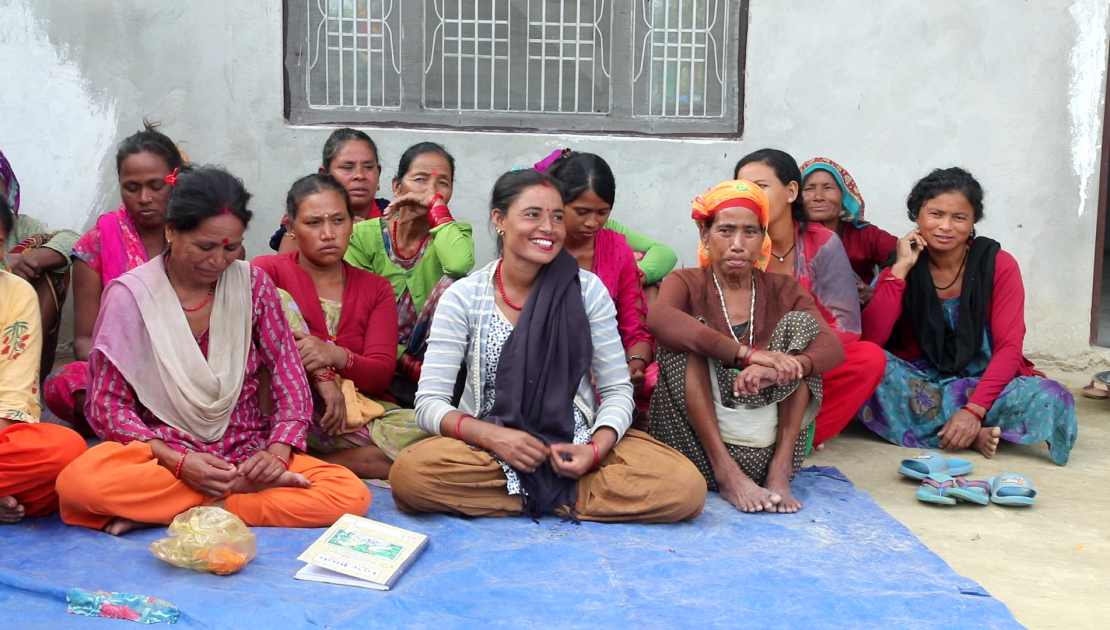
The women of Motipur village received SAFBIN team with beautiful garlands of flowers and leaves, while putting Tika on the visitors’ foreheads. Tika is a mark made with red powder, indicating that the visitor is very welcome. Representatives from three agriculture groups were in the meeting; the leader of the Reutari group, Ms. Shanti Tharu, told their story and what is changing in Motipur after SAFBIN.
“We are a group with 15 members. Before SAFBIN came here, we used to do agriculture, but we did not use to do research on these crops. Rather than doing plenty of farming without doing research, now we focus on growing the variety which is suitable to the soil. Another thing we learned is off-season farming. A third thing is that we started saving money, by fundraising among ourselves. By collecting the fund, now we managed to gather around NPR 250,000 to 300,000. On the 6th of every month we have a meeting.
This new variety Sukkha-2 was not here before, but SAFBIN came and provided it [in the first phase of the programme, from 2011 to 2016]. After SAFBIN left, we continued to grow this variety. Again, SAFBIN II is here now, and we smallholder female farmers are expecting to get new things. Now we are using Bahuguni-1, Sukkha-2 and Radha-4, which are about to be harvested.
SAFBIN has given us the opportunity of an exposure visit as well, to learn new things. It feels nice and we are happy. New technology and new practices, new approaches… we expect these things from you.
As we are women involved in agriculture, we are not very much educated. If we go abroad for work, we will not get better opportunities, so agriculture is the only option for our livelihood. That’s why we decided to form the group. Most of the men go abroad to earn. That’s why our group has a majority of women. It has played an important role to upgrade women’s status.
The seeds that SAFBIN provided, before we used to grow them in traditional way. Now we use tunnel practices, we cover the plot with plastic. Before we used to use chemical pesticides. SAFBIN started to promote organic practices through manure and botanical pesticides. It improved our health and knowledge.”